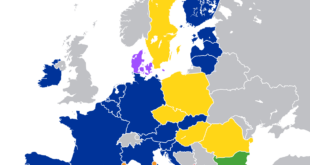- Recently, the Taliban has seized Kabul, the capital city of Afghanistan, raising questions over the US and NATO (North Atlantic Treaty Organization) trained Afghan Forces.
- The Taliban have proclaimed that there will be no witch hunt, that it will respect a transitional process, and that it will work for a future Islamic system that is acceptable to all.
Taliban
- The Taliban, or students in the Pashto language, emerged in the early 1990s in northern Pakistan following the withdrawal of Soviet troops from Afghanistan.
- It is an Islamic fundamentalist political and military organisation operating in Afghanistan. They have dominated Afghan polity for quite some time and feature regularly in international affairs.
- The Taliban have been fighting against the U.S.-backed government in Kabul for around 20 years. They seek to reimpose their strict version of Islam in Afghanistan.
Important points:
- On 11th September 2001, terrorist attacks in America killed nearly 3,000 people.
- So, a month after 9/11, the US launched airstrikes against Afghanistan (Operation Enduring Freedom).
- After the attacks, the NATO coalition troops declared war on Afghanistan. The US dislodged the Taliban regime and established a transitional government in Afghanistan.
- The US had reached the conclusion long ago that the war was unwinnable and approached for peace talks.
Implications for India:
- The first concern is for Indian diplomats, personnel and citizens based in Afghanistan.
- The Taliban’s control will also mean a bigger hand for the Pakistani military and intelligence agencies to influence outcomes for the country, which will mandate a much smaller role for Indian development and infrastructure work that has won it goodwill over the past 20 years.
- There is the threat of growing radicalisation and space for pan-Islamic terror groups in India’s neighbourhood.
Way Forward
- First option for India is to stick to its principle of backing only a democratically-elected government in Kabul, and providing political and humanitarian support while that lasts.
- Also, India can learn from US-Taliban talks where two opposing parties came to the negotiating table for talks on Afghanistan’s future.
SOURCE: THE HINDU,THE ECONOMIC TIMES,,MINT
 Chinmaya IAS Academy – Current Affairs Chinmaya IAS Academy – Current Affairs
Chinmaya IAS Academy – Current Affairs Chinmaya IAS Academy – Current Affairs



